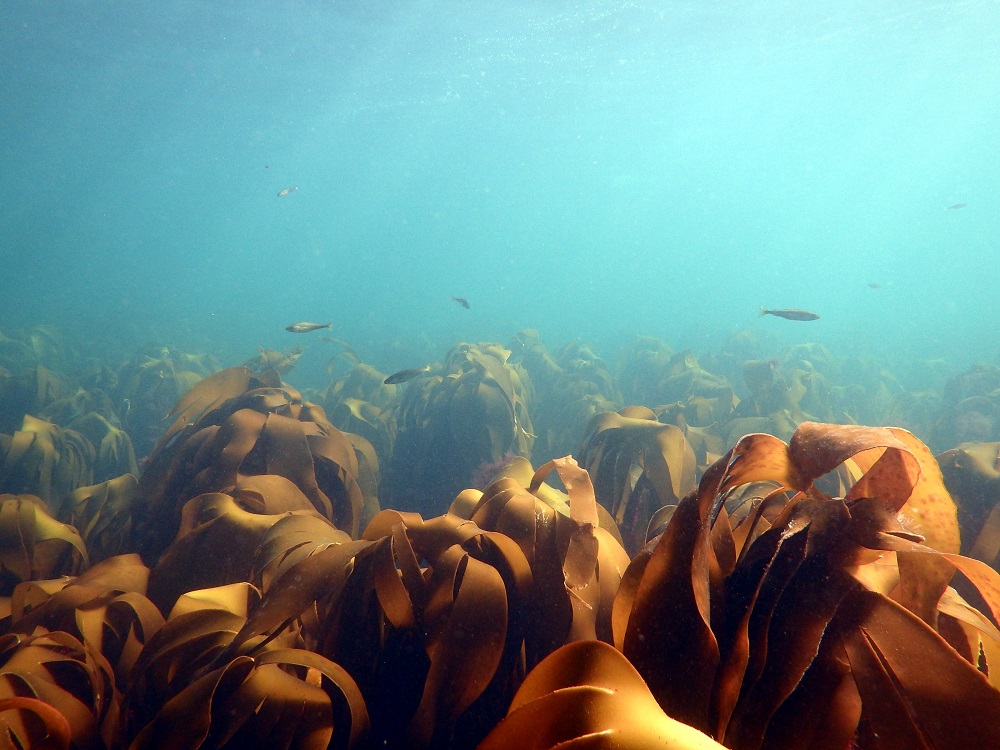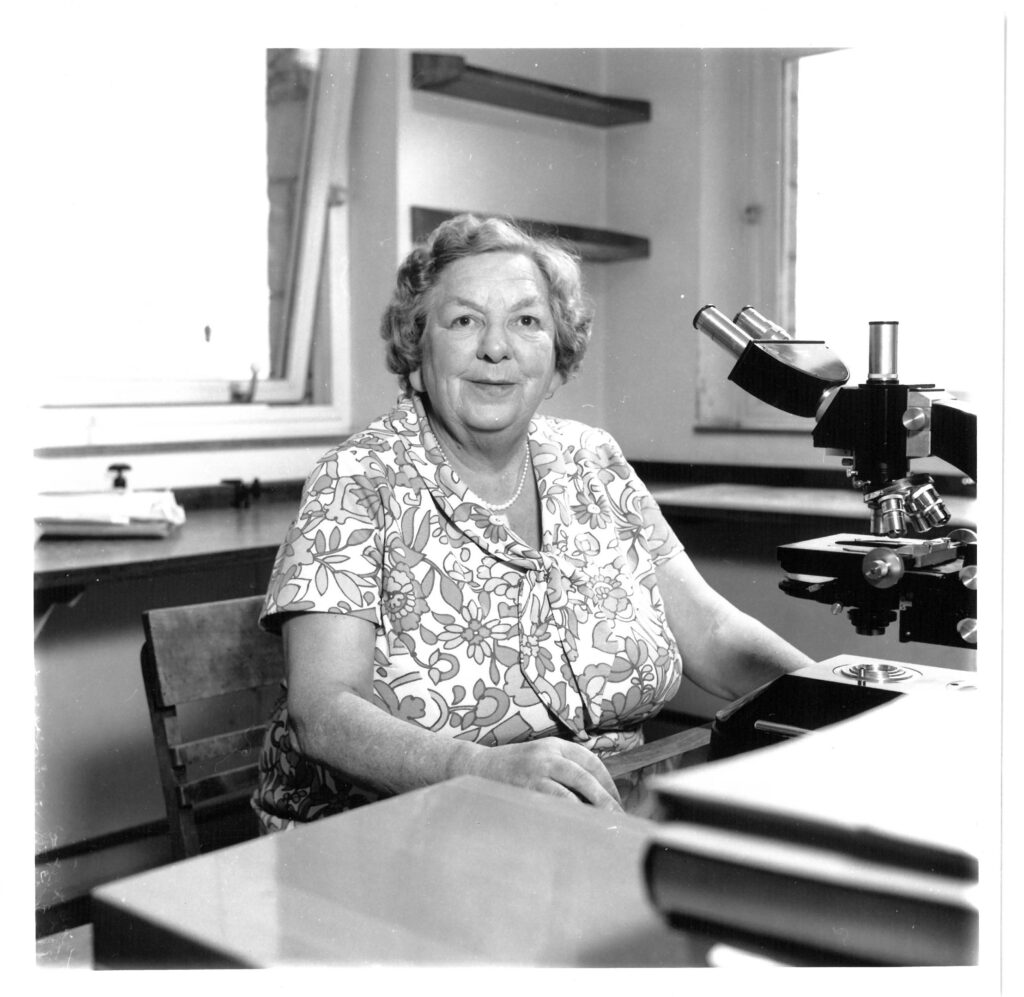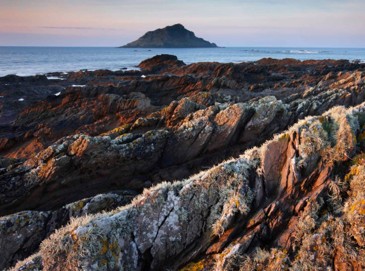A new scientific study has unearthed compelling insights into how the UK’s iconic kelp forests are responding to climate change — by revisiting seaweed surveys first conducted over 80 years ago by legendary MBA marine biologist Dr Mary Parke FRS.
Published in the journal Diversity and Distributions, the study – Intra and inter-decadal scale variability in kelp population structure reveal both stability and decline in a critical foundation species – combines rare historical records from the 1940s and 1980s with modern-day scuba diving and shore surveys, to reveal both long-term stability and troubling declines in the canopy-forming seaweed Laminaria hyperborea, a vital species that forms the backbone of many kelp forests across the vast coastline of northwest Europe.

c. Marine Biological Association
“It’s remarkable that we’re able to compare today’s kelp forests with data collected by early pioneers like Mary Parke. This kind of long-term perspective is incredibly rare in marine science, but essential if we want to understand how these ecosystems are changing over time,” said lead author Dr Dan Smale from the Marine Biological Association.
North-South divide in kelp forest health
The research team looked at kelp forests in two very different UK regions — the cooler waters of western Scotland and the warmer coast of southwest England. Both regions have warmed significantly in recent decades, largely as a consequence of climate change.
- In western Scotland, kelp populations appear remarkably stable, with little change in the density of size of plants since at least the 1980s.
- In contrast, southwest England shows signs of long-term declines in the density and biomass of kelp populations, likely linked to warming seas that are pushing these cold-adapted species beyond their comfort zone.
Why kelp matters
Often called the “rainforests of the sea,” kelp forests provide food, shelter and nursery grounds for hundreds of marine species, from fish and crabs to seabirds. They also play a critical role in capturing carbon and supporting coastal fisheries.
Losing kelp means losing one of the UK’s most productive and ecologically important marine habitats, although the researchers found some evidence of a more warm-adapted kelp species partly filling the gap.

Pioneering British phycologist Mary Parke. c. Marine Biological Association
Connecting past to present
The study builds on the foundational work of British phycologist Mary Parke, who in the 1940s conducted some of the earliest quantitative seaweed surveys globally while working at the MBA. The surveys followed a demand from the Ministry of Supply to produce camouflage textiles and other goods from seaweed-derived products during and after the Second World War. Her meticulous records have allowed modern scientists to re-visit the exact same sites decades later, which represents a rare and valuable opportunity in marine science.
“Without pioneering field ecologists, whose commitment and passion for observing our remarkable marine ecosystems was unwavering, we simply wouldn’t have a baseline to compare against,” said Dr Smale. “Their legacy is to help us understand how the ocean is changing today, and it’s crucial that we continue to carefully observe the natural world and support field-based marine biology.”

Church Reef, Wembury: Surveyed by Mary Parke et al, 12 times between 1942-1944 then resurveyed >70 years later, 7 times between 2016 and 2018. c. Marine Biological Association
Call for better monitoring
The study highlights the urgent need for more consistent, long-term monitoring of the marine habitats in coastal waters of the UK. While the Scottish sites appear resilient for now, ongoing ocean warming, storms, and invasive species may threaten even these more stable populations in the future.
The researchers are calling for better conservation measures and sustained scientific investment to protect these underwater forests and the life they support.
- The paper: Intra and inter-decadal scale variability in kelp population structure reveal both stability and decline in a critical foundation species
- Authors: Dan A. Smale, Nathan King, Albert Pessarrodona, Michael T. Burrows, Pippa J. Moore
- Lead institute: Marine Biological Association, Plymouth, UK
- Historical connection: Builds on surveys led by Mary Parke at the MBA in the 1940s.